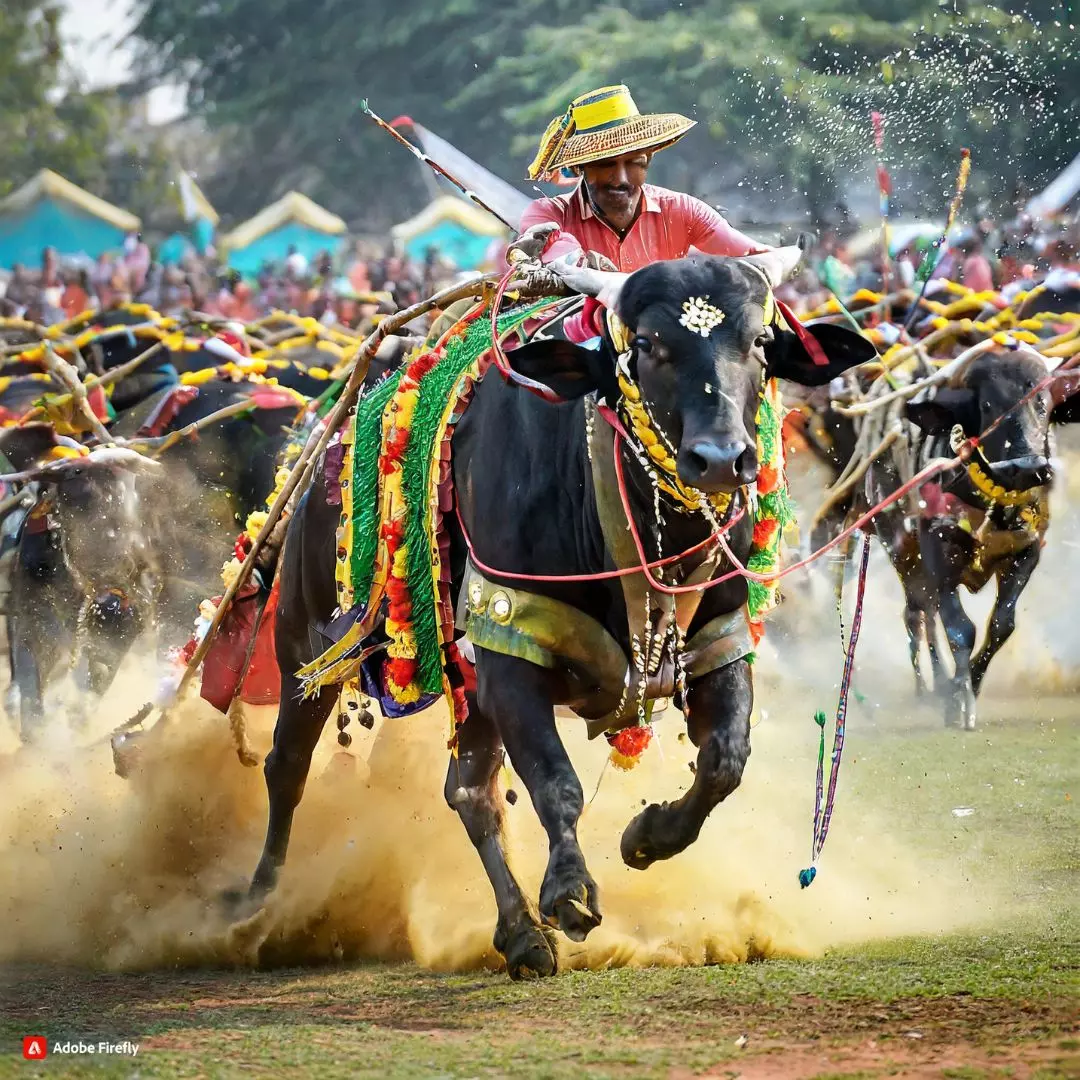In the vibrant landscape of Karnataka’s Dakshina Kannada district, an annual spectacle unfolds, blending tradition, sport, and controversy—the Kambala festival. Celebrated with zeal among the farming community, this unique event features the traditional buffalo race, captivating the region from November through March. Despite its deep-rooted history, Kambala has faced legal challenges and debates over its treatment of racing buffaloes.
The Kambala festival, originally known as Karaga celebrations, boasts a history that spans over a millennium. Evolving into the buffalo-centric event we know today, Kambala is deeply ingrained in the cultural fabric of Karnataka. Traditionally, the festival commences in November, creating a wave of excitement that echoes through Dakshina Kannada, particularly in Mangalore.
The Kambala season, extending from November to March, witnesses numerous races organized by Kambala samithis, comprising 18 associations. Over 45 races take place annually, not only in prominent locations but also in remote villages like Vandaru, Thonnase, and Gulvadi, contributing to the festival’s widespread appeal.
Etymology and Racing Format
The term “Kambala” finds its roots in ‘kampa-kala,’ where ‘kampa’ refers to a slushy, muddy field—a fitting description for the racetrack. The traditional racing format involved non-competitive, one-by-one runs, emphasizing the bond between the buffalo and the farmer. In contemporary Kambala, competitions often feature two pairs of buffaloes racing simultaneously.
The festival boasts various types of Kambalas, each with its unique significance. From Pookere Kambala to Baare Kambla, Kambala enthusiasts engage in diverse celebrations, including Natha Pantha, an event influenced by traditional dances and ceremonies performed by the Koraga community.
Kambala has evolved into an organized rural sport, featuring categories such as Nāyer, Bal, Aḍḍa palāyi, and Kaṇe palāyi. Thousands of spectators, including avid bettors, gather to witness the thrilling races, and in some locations, night races under floodlights add a modern twist to the age-old tradition.
Controversies and Legal Status
While Kambala draws large crowds, it has not escaped criticism, especially regarding the treatment of racing buffaloes. Whips have been traditionally used to drive the buffaloes, prompting concerns from animal rights activists. Legal battles ensued, leading to a temporary ban by the Supreme Court of India in 2014. However, the Kambala festival was re-legalized in Karnataka in 2017, following amendments to animal cruelty laws.
Kambala stands as a symbol of Karnataka’s rich cultural heritage, blending tradition and sport in a unique tapestry. As the festival continues to evolve, it grapples with the delicate balance between preserving centuries-old practices and addressing contemporary concerns related to animal welfare. The Kambala festival remains an integral part of Karnataka’s identity, sparking debates, celebrations, and a shared connection among its diverse communities.
Also Read: Embarking On Spiritual Journeys: Exploring The Rich Tapestry Of Pilgrimages Across India










